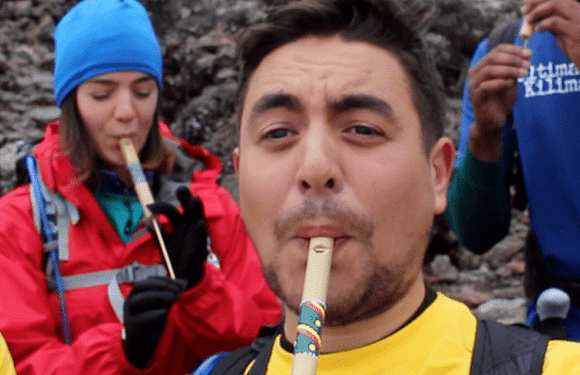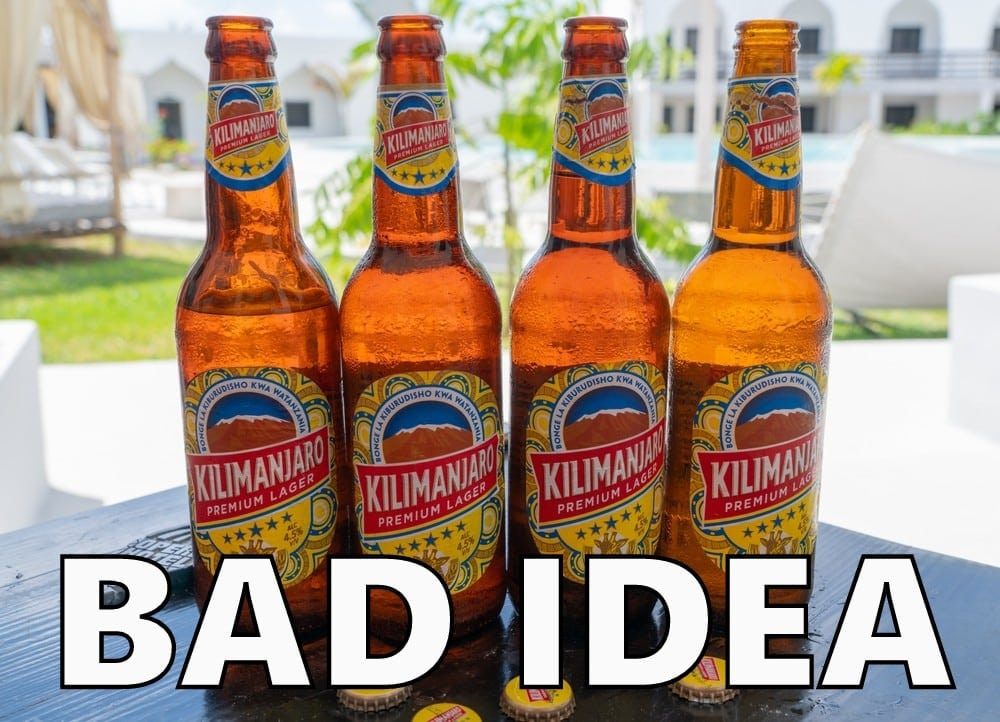
Alcohol consumption is widespread. Over half the world’s population, about 2.5 billion people, drink alcohol. At sea level, moderate drinking is usually tolerated, but at altitude the same amount can impair acclimatization and increase health risks.
How the Body Adapts to Altitude
At sea level, oxygen is abundant. Your body maintains a steady balance between oxygen and carbon dioxide. But at altitude, the air is thinner.
The body adapts to this low oxygen environment in a process called acclimatization. Breathing becomes faster and deeper to bring in more oxygen, and the kidneys adjust by excreting bicarbonate to balance blood chemistry. The heart rate rises to circulate oxygen more quickly, and over several days the body produces more red blood cells to improve oxygen transport. Together, these changes allow people to function at high elevations, though never as efficiently as at sea level.
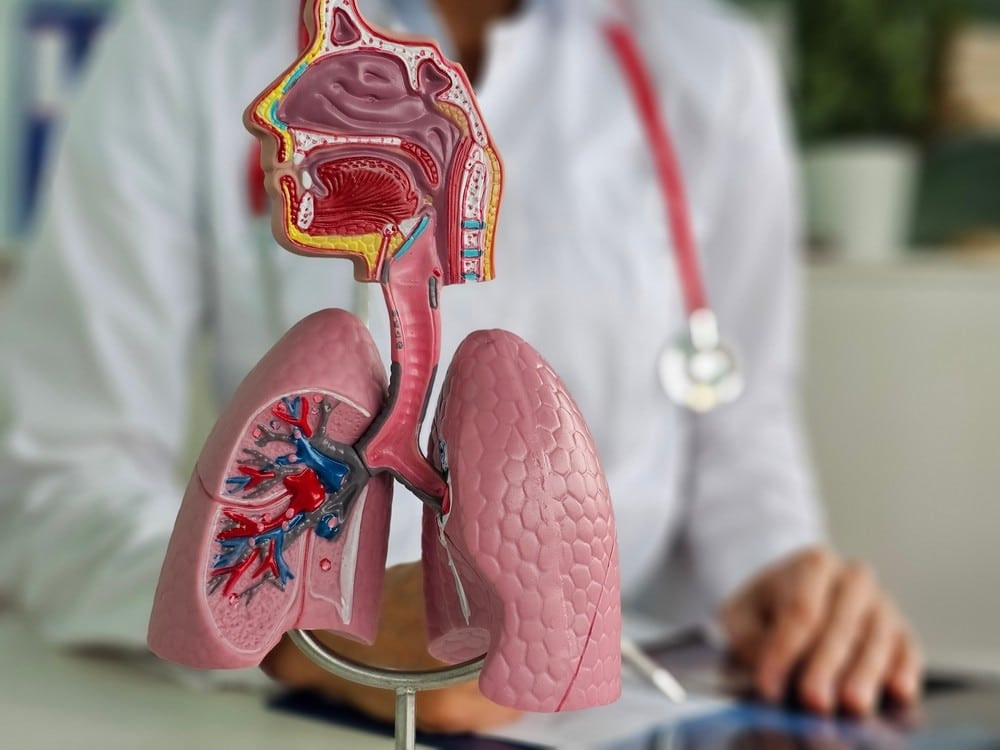
How Alcohol Interferes With Acclimatization
Alcohol undermines the acclimatization process in several ways.
Research shows that alcohol reduces the ventilatory response to altitude. In other words, it depresses breathing while the body is trying to increase breathing rate and depth. Alcohol weakens the very processes the body depends on to cope with thin air.
A study by Roeggla et al. (1995) demonstrated that after consuming 50g of alcohol at simulated altitude, subjects had lower blood oxygen and higher carbon dioxide than when sober. Another study (Silverstein et al., 2024) found that alcohol disrupts the body’s ability to keep up increased breathing during prolonged exposure to low oxygen. This means not only does alcohol make it harder for the body to begin ventilatory adaptation, it also makes it harder to sustain it.
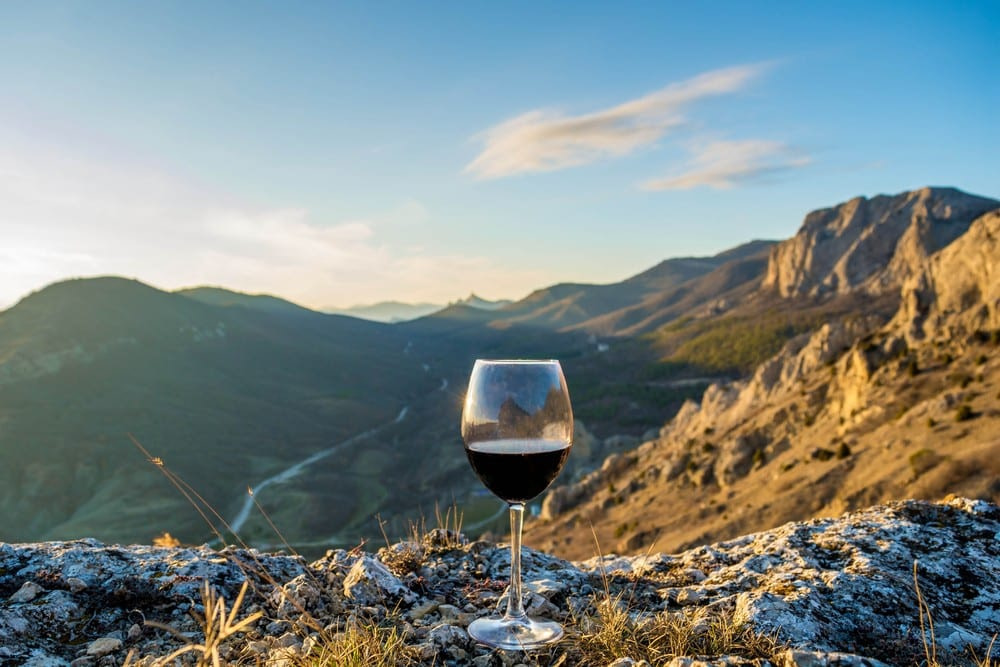
On top of this, alcohol worsens two altitude stressors that directly affect acclimatization: hydration and sleep. Hydration plays a supporting role in acclimatization. The kidneys rely on fluid balance to regulate blood chemistry, and stable blood volume is needed to circulate oxygen effectively. Alcohol, being a diuretic, accelerates fluid loss and makes dehydration more likely. It also disrupts sleep, which the body relies on for recovery at altitude. Since it suppresses deep restorative sleep, people who drink impair their ability to adapt.
Ultimately, alcohol blunts the body’s ability to acclimatize. This makes it harder to function at high elevation and raises the risk of acute mountain sickness. It also increases the chance of accidents. Coordination and judgment already decline in thin air. Add alcohol and the likelihood of missteps, falls, or poor decisions grows.
The key to successfully climbing Kilimanjaro is acclimatization. Anything that slows this process – including alcohol – increases the risk of altitude illness and other complications.
Does Alcohol Tolerance Decrease at Altitude?
A common question is whether alcohol tolerance decreases at altitude.
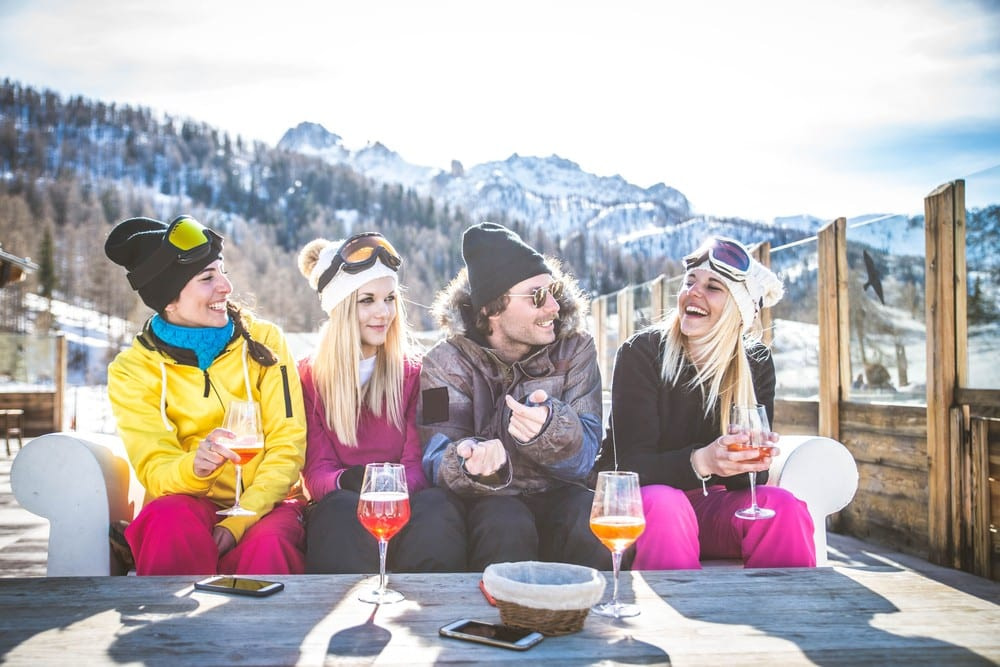
Alcohol tolerance itself does not change at altitude. The body metabolizes alcohol at the same rate as it does at sea level. What does change is how alcohol feels. At elevation, the brain is already affected by lower oxygen levels, which impair coordination, judgment, and reaction time. Adding alcohol amplifies these effects, so people often feel intoxicated more quickly and with fewer drinks.
Research in simulated altitude chambers shows that alcohol and hypoxia have additive effects on performance. One drink at 12,000 ft (3,650 m) can feel much stronger than the same drink at sea level.
What the Experts Say
While the evidence base is still limited, the studies that exist and decades of clinical experience point in the same direction: alcohol and acclimatization do not mix.
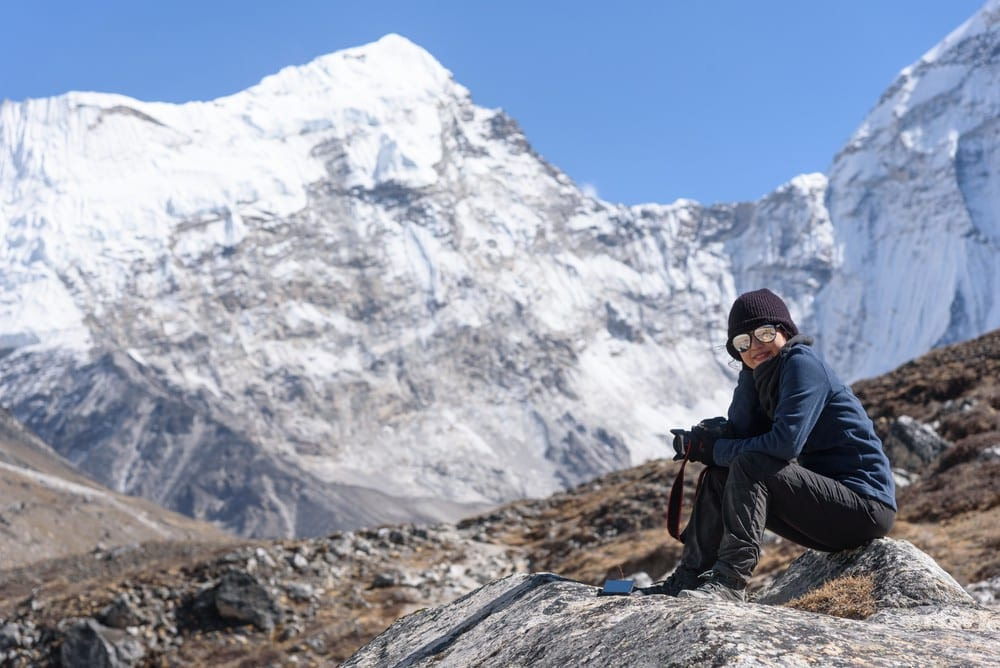
The U.S. Centers for Disease Control and Prevention advises travelers to avoid alcohol for the first 48 hours at altitude. High altitude medical guidelines emphasize hydration, rest, and gradual ascent. Alcohol works against all three.
Mountain medicine experts consistently warn against alcohol use at altitude. The Wilderness Medical Society, a leading body in expedition and high-altitude health, identifies respiratory depressants (including alcohol) as a threat to adaptation. The National Outdoor Leadership School (NOLS), a major wilderness education institution, advises climbers to avoid alcohol entirely during acclimatization. Altitude medicine texts likewise list alcohol consumption as a risk factor that hinders the body’s adaptation to thin air.
A recent observational study on Mount Fuji involving 887 climbers looked at alcohol consumption during ascent and acute mountain sickness (AMS). It found that alcohol consumption increased AMS risk in middle-age climbers. Younger climbers were less affected, but the findings reinforce what experts have long advised: alcohol use at altitude carries risk.
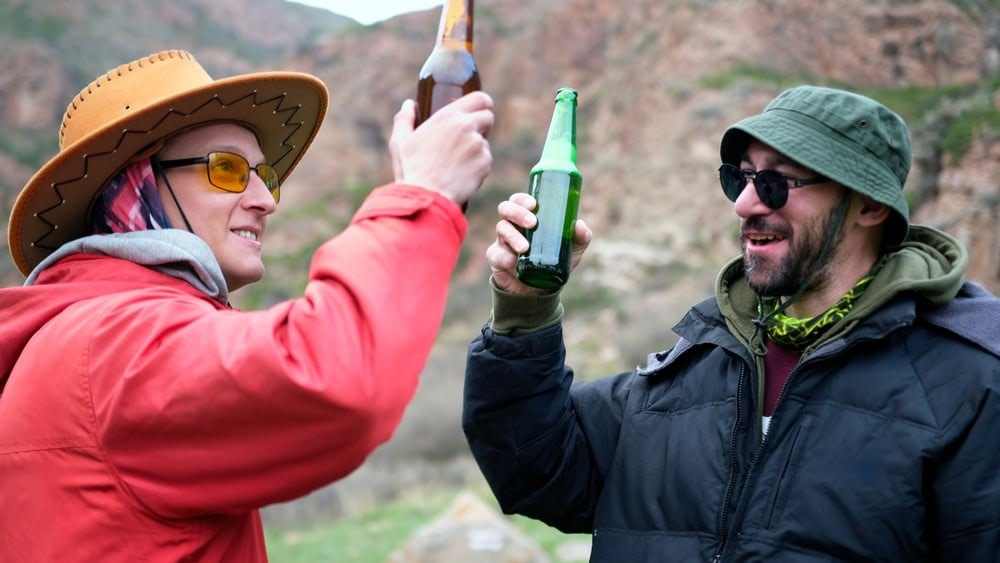
Alcohol on Mount Kilimanjaro
Alcohol is banned on the mountain.
Although beer is sold near the Kilimanjaro gates and in nearby towns, alcohol is not permitted once you begin the climb. Tanzania National Parks Authority (TANAPA) regulations prohibit carrying or consuming alcohol on the mountain. The reasons are practical. Guides and rangers know that drinking makes altitude illness more likely, masks early symptoms, and increases risk of accidents. The rule protects both climbers and the crews responsible for their safety.
Save the celebration for after the descent.























































